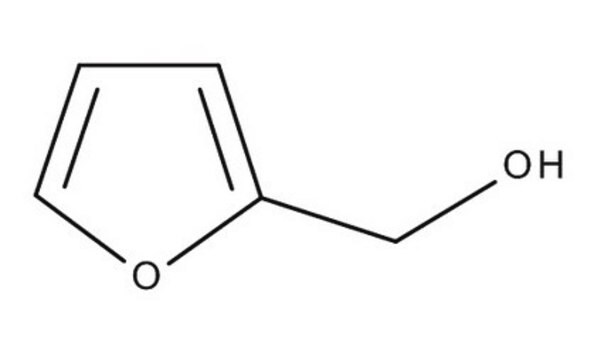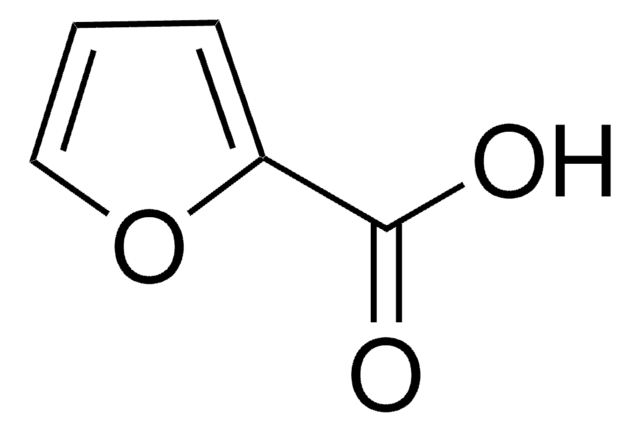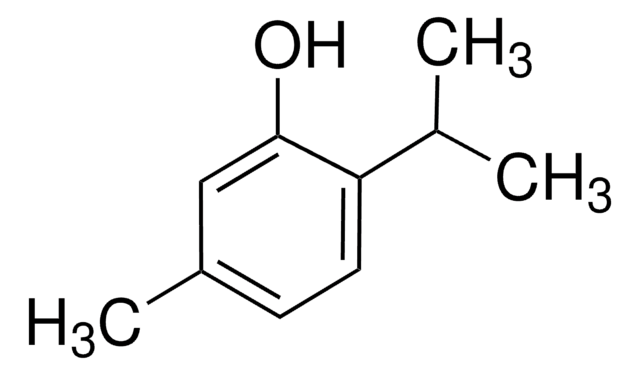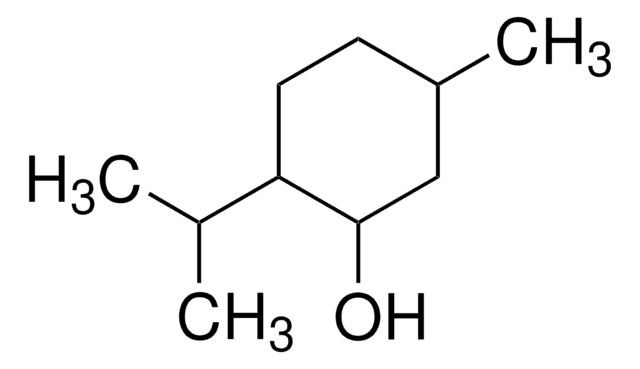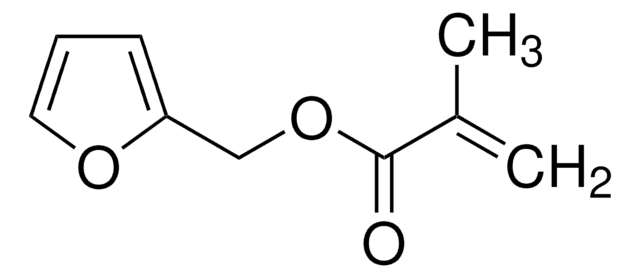185930
Furfuryl alcohol
98%
Synonym(s):
2-(Hydroxymethyl)furan
About This Item
Recommended Products
vapor density
3.4 (vs air)
Quality Level
vapor pressure
0.5 mmHg ( 20 °C)
1 mmHg ( 32 °C)
5.5 mmHg ( 55 °C)
Assay
98%
form
liquid
autoignition temp.
915 °F
expl. lim.
16.3 %
refractive index
n20/D 1.486 (lit.)
bp
170 °C (lit.)
mp
−29 °C (lit.)
solubility
alcohol: soluble
benzene: soluble
chloroform: soluble
diethyl ether: very soluble
water: miscible
density
1.135 g/mL at 25 °C (lit.)
functional group
hydroxyl
SMILES string
OCc1ccco1
InChI
1S/C5H6O2/c6-4-5-2-1-3-7-5/h1-3,6H,4H2
InChI key
XPFVYQJUAUNWIW-UHFFFAOYSA-N
Looking for similar products? Visit Product Comparison Guide
General description
Furfuryl alcohol is a furan derivative widely used as a singlet oxygen trapping agent and food additive. Building block for resins, adhesives and coatings.
Application
It can also be used:
- As a starting material to synthesize ethyl levulinate, a biofuel from lignocellulosic residues.
- To prepare colloidal microporous carbon spheres, applicable as adsorbents and catalyst supports.
- As a starting material to prepare cyclopentanone through aqueous phase hydrogenation reaction using metal catalysts.
Signal Word
Danger
Hazard Statements
Precautionary Statements
Hazard Classifications
Acute Tox. 2 Inhalation - Acute Tox. 4 Dermal - Acute Tox. 4 Oral - Carc. 2 - Eye Irrit. 2 - STOT RE 2 Inhalation - STOT SE 3
Target Organs
Nose, Respiratory system
Storage Class Code
6.1A - Combustible acute toxic Cat. 1 and 2 / very toxic hazardous materials
WGK
WGK 1
Flash Point(F)
149.0 °F - closed cup
Flash Point(C)
65 °C - closed cup
Personal Protective Equipment
Regulatory Listings
Regulatory Listings are mainly provided for chemical products. Only limited information can be provided here for non-chemical products. No entry means none of the components are listed. It is the user’s obligation to ensure the safe and legal use of the product.
FSL
Group 4: Flammable liquids
Type 2 petroleums
Hazardous rank III
Water soluble liquid
ISHL Indicated Name
Substances Subject to be Indicated Names
ISHL Notified Names
Substances Subject to be Notified Names
JAN Code
185930-1KG:4548173929651
185930-VAR:
185930-BULK:
185930-250G:4548173929668
185930-50G:4548173929675
Choose from one of the most recent versions:
Already Own This Product?
Find documentation for the products that you have recently purchased in the Document Library.
Customers Also Viewed
Our team of scientists has experience in all areas of research including Life Science, Material Science, Chemical Synthesis, Chromatography, Analytical and many others.
Contact Technical Service


